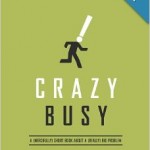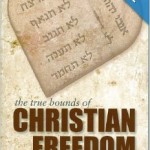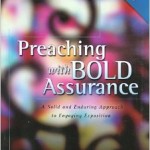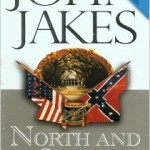I love to read. By God’s grace I am a pretty fast reader; I usually read a couple books each week. I find it helpful to summarize my thoughts on each book and I offer those thoughts in hopes that you will be encouraged to either read or pass over the given title.
 Crazy Busy: A (Mercifully) Short Book About a (Really) Big Problem by Kevin DeYoung. DeYoung’s latest book is a exactly what the subtitle claims to be. After identifying three dangers of busyness, DeYoung proceeds to offers seven diagnoses to consider along with “one thing you must do.” I’ve seen a couple prominent reviews express various concerns with the book, but I believe DeYoung succeeds in what he sets out to do: call people to examine their state of busyness in light of Scripture. His diagnoses are wise and he correctly reminds us that “the reason we are busy is because we are supposed to be busy” (101). I do wish the final chapter on “The One Thing You Must Do” had more emphasis on public communion with Christ – he emphasizes private communion through the Word and prayer – but regular communion with Christ indeed is the one thing we must do. If one wants more practical suggestions on fighting foolish busyness, see David Murray’s “Addendum to Crazy Busy.”
Crazy Busy: A (Mercifully) Short Book About a (Really) Big Problem by Kevin DeYoung. DeYoung’s latest book is a exactly what the subtitle claims to be. After identifying three dangers of busyness, DeYoung proceeds to offers seven diagnoses to consider along with “one thing you must do.” I’ve seen a couple prominent reviews express various concerns with the book, but I believe DeYoung succeeds in what he sets out to do: call people to examine their state of busyness in light of Scripture. His diagnoses are wise and he correctly reminds us that “the reason we are busy is because we are supposed to be busy” (101). I do wish the final chapter on “The One Thing You Must Do” had more emphasis on public communion with Christ – he emphasizes private communion through the Word and prayer – but regular communion with Christ indeed is the one thing we must do. If one wants more practical suggestions on fighting foolish busyness, see David Murray’s “Addendum to Crazy Busy.”
 The True Bounds of Christian Freedom by Samuel Bolton. First published in 1645, this book addresses the timeless issue of a Christian’s freedom as it relates to Jesus’ declaration, “If the Son therefore shall make you free, ye shall be free indeed” (John 8:36). In typical Puritan fashion, Bolton pulls from this verse one overarching doctrine: “That there is a true and real freedom which Christ has purchased, and into which He has brought all those who are true believers “(19). The rest of the work is occupied with answering six questions related to the law and freedom. Bolton reveals himself to be a master of precision and distinction in regards to the thorny issues of law and gospel. He correctly understands how the Christian can be simultaneously free from and bound to the law; freed from it as a covenant, but not as a rule. Chapter 5 on “Performance of Duty” and its articulation of the “nine differences between legal obedience and evangelical obedience” is solid gold.
The True Bounds of Christian Freedom by Samuel Bolton. First published in 1645, this book addresses the timeless issue of a Christian’s freedom as it relates to Jesus’ declaration, “If the Son therefore shall make you free, ye shall be free indeed” (John 8:36). In typical Puritan fashion, Bolton pulls from this verse one overarching doctrine: “That there is a true and real freedom which Christ has purchased, and into which He has brought all those who are true believers “(19). The rest of the work is occupied with answering six questions related to the law and freedom. Bolton reveals himself to be a master of precision and distinction in regards to the thorny issues of law and gospel. He correctly understands how the Christian can be simultaneously free from and bound to the law; freed from it as a covenant, but not as a rule. Chapter 5 on “Performance of Duty” and its articulation of the “nine differences between legal obedience and evangelical obedience” is solid gold.
 Preaching with Bold Assurance by Hershael York and Bart Decker. This book feels more focused on communication than preaching, which makes sense seeing that Decker developed the “Bold Assurance” brand as a corporate communication program. “The Decker Grid” (always coupled in the book with an obligatory trademark) has practical wisdom, but isn’t clearly tethered to Scripture. If one goes into this book thinking about it as being more of a guide to broader communication principeles, there is profit to be had. The final four chapters on delivery will challenge any man who stands in a pulpit to think hard about his effectiveness in communicating the Word.
Preaching with Bold Assurance by Hershael York and Bart Decker. This book feels more focused on communication than preaching, which makes sense seeing that Decker developed the “Bold Assurance” brand as a corporate communication program. “The Decker Grid” (always coupled in the book with an obligatory trademark) has practical wisdom, but isn’t clearly tethered to Scripture. If one goes into this book thinking about it as being more of a guide to broader communication principeles, there is profit to be had. The final four chapters on delivery will challenge any man who stands in a pulpit to think hard about his effectiveness in communicating the Word.
 North and South by John Jakes. This is the first volume in Jakes’ historical fiction trilogy on the Civil War. The value of good historical fiction is that it gives the reader a sense of life in the respective period. North and South traces the story of two families – one based in Pennsylvania and the other in South Carolina – from 1842-1861. Jakes’ ably employs a colorful cast of characters to capture the various nuanced worldviews that would lead to secession. One thing I enjoy about historical fiction is watching the author position his characters to be in the heart of key events, and Jakes manages to get characters to The Mexican-American War, Harper’s Ferry, and Fort Sumter. A fun page turner.
North and South by John Jakes. This is the first volume in Jakes’ historical fiction trilogy on the Civil War. The value of good historical fiction is that it gives the reader a sense of life in the respective period. North and South traces the story of two families – one based in Pennsylvania and the other in South Carolina – from 1842-1861. Jakes’ ably employs a colorful cast of characters to capture the various nuanced worldviews that would lead to secession. One thing I enjoy about historical fiction is watching the author position his characters to be in the heart of key events, and Jakes manages to get characters to The Mexican-American War, Harper’s Ferry, and Fort Sumter. A fun page turner.
